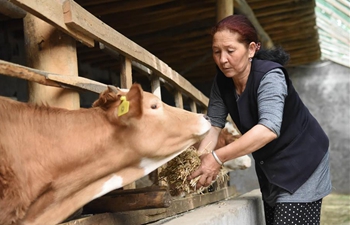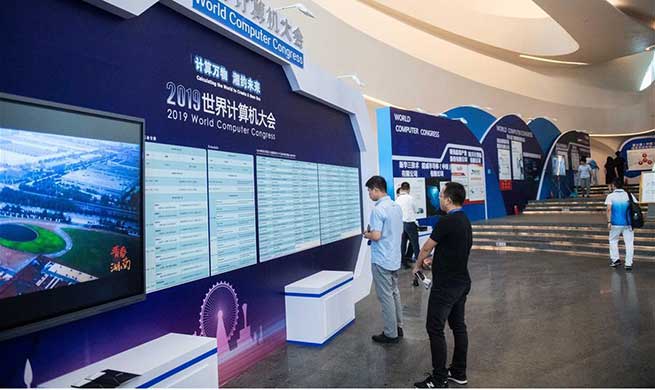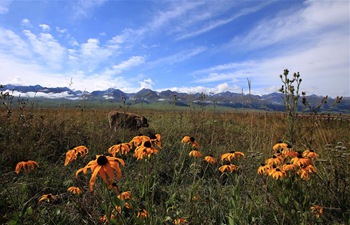BEIJING, Sept. 11 (Xinhua) -- Researchers have successfully completed quantifying land carbon sink enhancement by carbon dioxide fertilization over the past five decades.
Quantifying land carbon sink response to rising carbon dioxide is important to understand and predict how climate interacts with the carbon cycle.
When a terrestrial ecosystem absorbs more carbon from human carbon dioxide emissions than it emits, carbon sink happens. Scientists have found that rising carbon dioxide concentration in the air enhances land carbon sink, a process known as carbon dioxide fertilization.
Researchers from 28 institutions in nine countries quantified the effect of rising carbon dioxide on terrestrial carbon dioxide sink since the 1960s, using simulations from 12 terrestrial ecosystem models and observations from seven field carbon dioxide enrichment experiments.
The result showed that the northern temperate and site-scale terrestrial carbon sink enhancement by carbon dioxide fertilization are positively correlated across the models.
The researchers estimated that terrestrial carbon sink increases by 0.64 billion tonnes per year in the temperate Northern Hemisphere for every 100 PPM density increase in carbon dioxide in the air.
They also revealed that carbon dioxide fertilization is primarily responsible for the observed increase in global terrestrial carbon sink.
"To explain further mechanisms underlying the carbon dioxide fertilization effect, more longer-term field experiments are required, particularly in arctic and tropical ecosystems," said Liu Yongwen, a researcher at the Institute of Tibetan Plateau Research of Chinese Academy of Sciences.

















